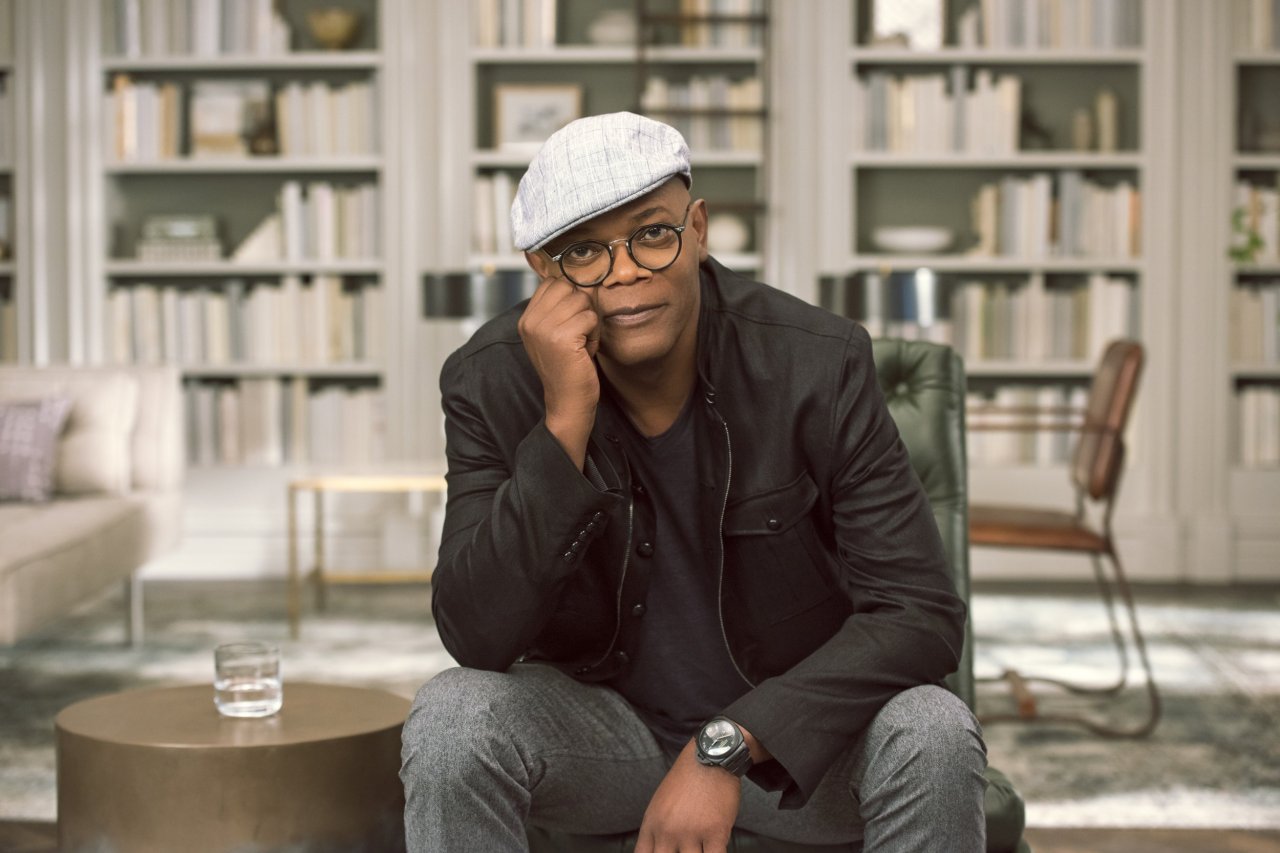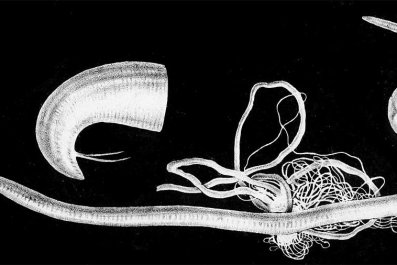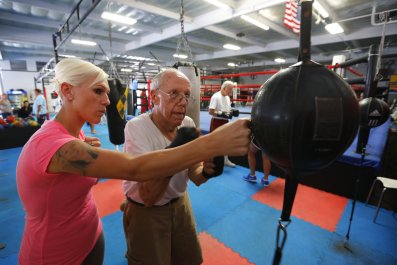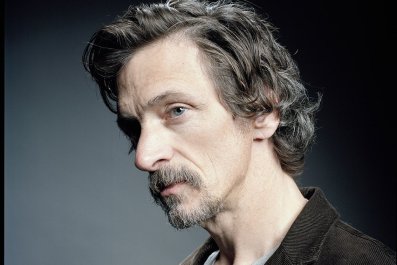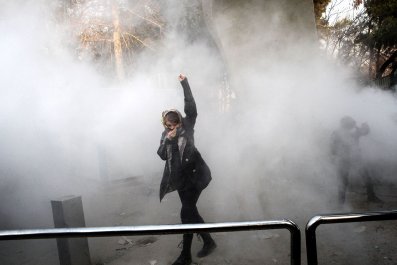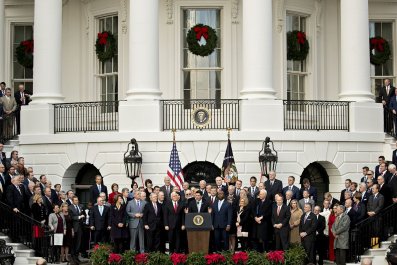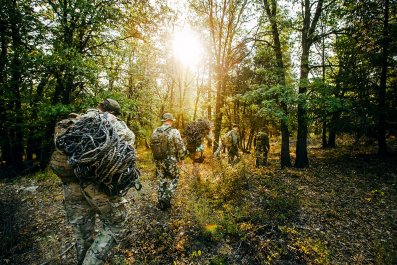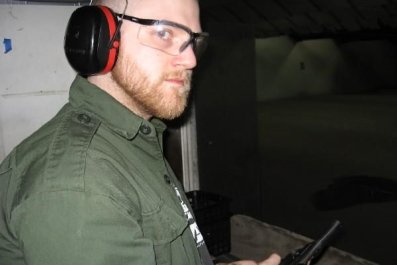Samuel L. Jackson has appeared in more than 100 films, bringing, among others, a Bible-quoting hitman (Pulp Fiction), a Star Wars character (Mace Windu), a disabled comic gallery owner (Unbreakable) and a Marvel crusader (Nick Fury) to vivid life. When he's on screen, you pay attention. So who better to command a classroom?
Jackson makes his debut as acting teacher with a course presented by the online education platform MasterClass. In 21 lessons, students learn the basics of the craft (like patience) from one of the most successful and recognizable actors in Hollywood.
The actor liked it more than he thought he would. "I was worried because I don't consider myself a teacher. I don't think that I'm even-tempered enough to watch people do something bad and not be upset by it," he says.
And nobody wants Jackson mad at them, since he's also a master of another art, cursing—particularly when motherfucking snakes get on a motherfucking plane. His "Elmer Fudd word," as he calls it, helped him to overcome a stutter. "When I try to talk too fast or I'm nervous or there's some tension, it creeps back into my speech pattern, reminding me to take a breath: 'Stop. Stop motherfucker, stop.' It just grounds me," he says with a laugh. "I don't know why."
Jackson gave Newsweek a lesson in swearing during a conversation about his new MasterClass course, his experience teaching and the people who helped shape him as an actor.
What's the key to swearing, and swearing well?
Having a command of the language in a specific way and having more than a rudimentary knowledge of how English works, in terms of coloring a word or coloring a phrase or making sure that what you say is understood without any question. Swear words are used for emphasis or as a description of what a thing particularly was. If you tell somebody, "It was really amazing," that's one thing. But if you say "It was a motherfucker!"? That's even greater than amazing.
There's quiet cursing, too. Quiet cursing is pretty frightening to people. They know, "Oh my God, he's seething. This person's so angry they can't raise their voice to me." There's an explosion building.(Laughs)
Do you get people coming up to you asking you to swear at them?
People do ask me to call them "motherfucker," yes. Or if somebody's just hounding me, hounding me, hounding me, take a picture, take a picture, take a picture, it's like, "Motherfucker stop!" And they go, "Oh! Yeah!"
It's something you accept. If that's their dynamic and how they want to interact with me, OK. Nothing I can do about that. If that's how they perceive me, fine. It's something to appreciate, it's not something to hate. Better to be liked than not liked, so fuck it
You say in one of your MasterClass lessons that "'motherfucker' was my 'Elmer Fudd' word." That word is something I think a lot of people see as a big part of the Samuel L. Jackson they see on screen, but it sounds like it was more important than people might realize.
It's just something that helped me cope. We all have different coping mechanisms; that was mine when I was younger. To make myself fit or feel OK about me when I spoke out loud. I still struggle not to stutter in certain situations. It's not something that just went away. When I try to talk too fast or I'm nervous or there's some tension, it creeps back into my speech pattern. And "motherfucker" is that thing, like, Stop. Take a breath. Stop motherfucker, stop! It just grounds me. (Laughs.) I don't know why.
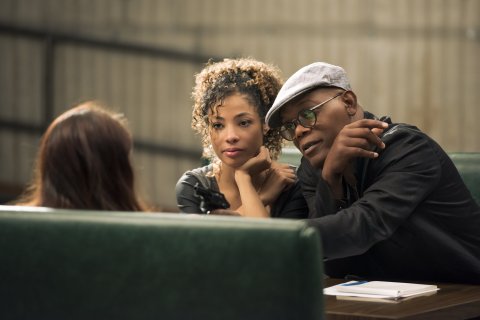
At the end of your course, you walk off-camera and you say, "Fuck, that was awesome!" What was so awesome about it?
I enjoyed myself! I was worried about it. I don't consider myself a teacher. I don't think that I'm even-tempered enough to watch people do something bad and not be upset by it. So I marvelled at the fact that I was able to talk to those actors in a general way, with a teaching tone. People say, "Why don't you direct?" I say, "I don't know if I could stand to watch an actor do something badly and not snap at them, 'What the hell are you doing?'" I was able to have more compassion for their dilemma than I thought I would have. Some of them accomplished what was presented and some didn't. But I was able to enjoy the bad and the good and not be offended by the bad.
Was that something you had to think about in the moment? Some teachers can just lay into students if they mess up, but you seemed pretty even-keel and supportive with criticism.
I never took those acting classes where people did things and then everybody stands around and critiques them. I had done so much stuff before I got to New York that I just got to New York and went to work. I knew people who did it and I had gone with people when they had auditions to try to get into somebody's class and been their acting partner. But I've never done it.
So it was a different setting for me—to do it, talk about it and know what had gone before. I was surprised at the fun of that creative process was—to watch somebody try and find something and to help them find what that thing is that makes a particular moment and scene work.
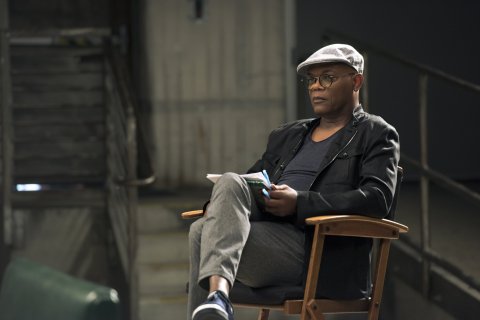
When you started acting, who were your teachers? Who did you learn the most from?
Dr. Baldwin Burroughs, the head of the drama department at Spelman College, was my first real teacher. He was a person who drilled stage mechanics into all of us: upstage, downstage, stage right, stage left, countercrossing, being in a dominant position, being in a submissive position, how to listen actively. Everybody needs a base.
Then people like Douglas Turner Ward [founder and artistic director of he Negro Ensemble Company] and Lloyd Richards [dean of the Yale School of Drama] forced me to explore relationships with the actors on stage or the relationship to the material and what it is and what it means to that particular character in that story and what they're trying to accomplish. They ask you questions that aren't on the page and force you to create a life for that character before you act, so you have specific reasons for why you do things. That gives you an acting experience beyond the acting, where you're figuring it out before you go to work. Every day I was encouraged to come with a motivation or a new relationship or a new insight into how I related to the characters I was on stage with. A lot of people don't ask you to do that.
What was the most important lesson you've learned as an actor?
Patience, for how long it takes. Some people are overnight sensations, but it's usually about pacing yourself and understanding that the work is more important than the result of the work. We want to feel an artistic satisfaction that will transfer to an audience. You don't want to go in there expecting. The expectations can never be met.
On stage, there's a new audience every night and every audience brings a different dynamic. For instance, there's a scene where you know people are going to laugh, and if they don't laugh one night a lot of actors get thrown and they go, "Oh shit, we're fucking up." It's, like, No, the audience is in another place. Maybe they're listening tonight and taking a journey with another character. They're not taking the journey with the whole play. The thing you have to learn: Do the work for your satisfaction, not for everybody else's. You hope an audience likes it. But if they don't, know that you went out there and did the best that you could do.
For more information on Samuel L. Jackson's acting course and to sign up for it, visit the MasterClass website.



